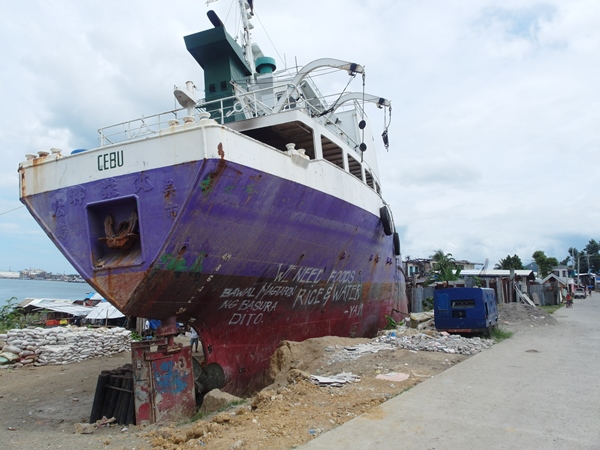Marcus Butler
10 August 2015: More than 11 million people were left without homes following the devastating Typhoon Haiyan, which hit the Philippines in 2013, now one University of Canberra researcher is taking on the challenge, thinking about how locals can build back better.
Discovery early career research award fellow with the Centre for Deliberative Democracy & Global Governance at the University of Canberra, Nicole Curato will deliver a seminar on her research into community and political engagement in the post-Haiyan Philippines on 11 August.
Haiyan was the strongest tropical cyclone on record and resulted in more than 6,000 deaths in the Philippines and rebuilding efforts continue for those who lost their homes and communities.
Dr Curato, who received an Australian Research Council's discovery early career research award worth more than $324,500 for her Building Back Better project said it examines the involvement of the citizens of the Philippines in the recovery after Haiyan.
"Ideally affected populations can have a direct say on the process of rebuilding and recovery, but unfortunately reality tells a different story," Dr Curato said.
"Democracy is about engagement of the whole population, but my analysis has shown there are many roadblocks which prevent people, particularly from low-socio economic backgrounds from having their say about the recovery.
"There were impediments to people participating in the recovery, access to the technology was one, and for some the lack of self-confidence among low socio-economic people effectively silenced their voice," she said.
As part of her work Dr Curato undertook two study trips into the field to interview local people about the impact of digital technologies in giving them a voice after Typhoon Haiyan. This study trip is also part of a collaborative project with colleagues from Goldsmiths-University of London and Leicester University funded by UK's Economic and Social Research Council.
"Our project focused on the communicative aspects of the recovery process in the post-Haiyan Philippines and we found that digital technology was not giving poorer people a real voice in the recovery process.
Dr Curato hopes to be able to build on her research to deliver an evaluation framework that can be used in various crises.
"I'd like to see my work lead to a new way for governments, NGOs, charities and relief organisations to gauge their work and the involvement of the people that they help in the recovery and re-building process," Dr Curato said.



